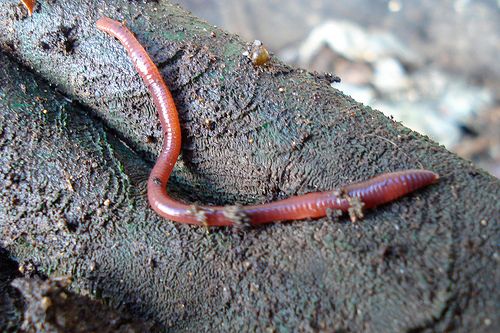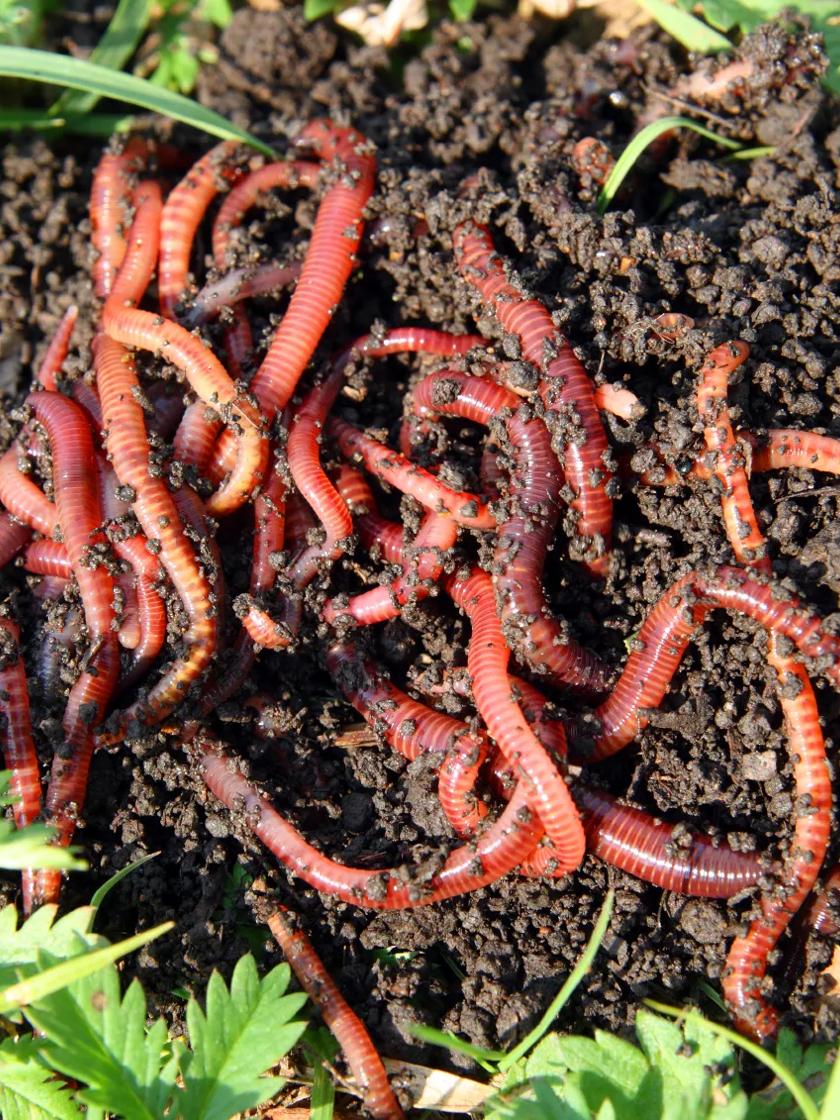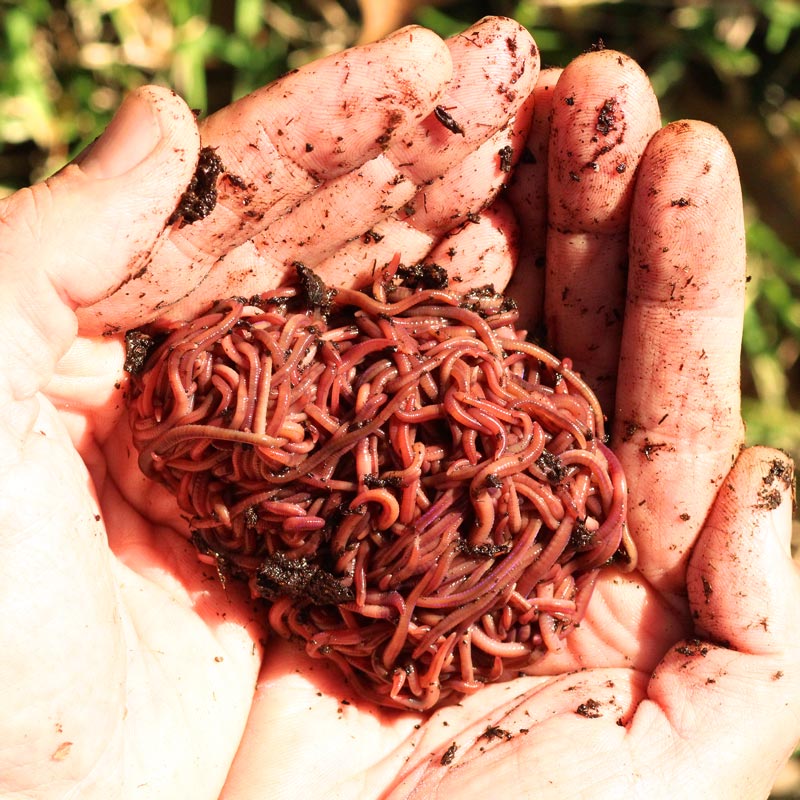Red Wiggler Worms Demystified: Opening the Tricks of Vermiculture for Greener Living and Nutrient-Rich Dirt
In the world of lasting methods for improving soil high quality and promoting eco-conscious living, red wiggler worms play a crucial yet usually forgotten duty. Red Wiggler Worms. Understanding the details of caring for these worms, enhancing their atmosphere, and utilizing their castings can lead to a greener way of living and much healthier dirt for plants to prosper.
The Duty of Red Wiggler Worms
Red Wiggler worms play an important duty in composting systems by effectively breaking down raw material into nutrient-rich spreadings. These voracious eaters consume a selection of organic products, such as kitchen area scraps, lawn waste, and paper products. As they feed, the worms' gastrointestinal processes break down the organic matter into a fine, dark, and nutrient-dense material known as worm spreadings or vermicompost.
The spreadings generated by Red Wiggler worms are very advantageous for dirt wellness and plant development. They are rich in vital nutrients like potassium, phosphorus, and nitrogen, which are crucial for sustaining healthy and balanced plant growth. Additionally, worm castings include valuable microorganisms and enzymes that aid enhance soil structure, increase water retention, and boost nutrient uptake by plants.
Advantages of Vermicomposting

Additionally, vermicompost, the nutrient-rich final product of vermicomposting, acts as a superb natural fertilizer and dirt conditioner. It boosts dirt framework, improves soil aeration, and raises soil dampness retention. These buildings contribute to healthier plants with stronger root systems and much better resistance to pests and conditions. Vermicompost likewise improves the soil with important nutrients like nitrogen, potassium, and phosphorus, advertising plant growth and overall dirt fertility.
Additionally, vermicomposting assistances lasting horticulture practices by giving a chemical-free and natural choice to synthetic fertilizers. Red Wiggler Worms. This eco-friendly method not just enriches the dirt however additionally helps decrease dependence on damaging chemicals, advertising a greener and a lot more sustainable method of gardening
Setting Up a Worm Container
When establishing a worm bin for vermicomposting, correct arrangement is essential to make sure the success of the webpage composting procedure. The very first step in establishing a worm container is choosing a suitable container. This can be a plastic bin or wooden box that gives adequate space for the worms to walk around and has correct water drainage openings to avoid waterlogging. Next, a bed linens product such as shredded paper, cardboard, or coconut coir should be contributed to the container. This bed linen gives a comfy environment for the worms and aids keep wetness levels.
After adding the bedding, introduce the red wiggler worms to the container. It is recommended to start with a tiny number of worms and progressively enhance as they multiply. The worms need to then be supplied with food scraps such as fruit and veggie peels, coffee grounds, and eggshells. It is vital to prevent including meat, dairy, oily, or salted foods to avoid attracting parasites and producing unpleasant odors.
Routinely check the wetness link levels and temperature in the worm container to ensure optimum problems for the worms. With correct arrangement and upkeep, the worm bin will properly convert natural waste right into nutrient-rich garden compost for your plants and garden.
Gathering Worm Castings
To efficiently accumulate nutrient-rich worm spreadings from your vermicomposting system, a methodical harvesting technique is essential. When it comes time to gather the worm castings, there are a couple of crucial steps to comply with to ensure a successful procedure.

Troubleshooting Common Issues
Recognizing and attending to usual difficulties that may occur during the vermicomposting process is critical for maintaining a productive and healthy worm bin. Including excess food scraps can lead to an accumulation of dampness and level of acidity in the news worm bin, potentially damaging the worms. One more issue is undesirable smells originating from the worm bin.
In addition, if the worm population is declining or the worms show up undesirable, it could be as a result of environmental stressors such as severe temperature levels or pH degrees. Monitoring these aspects and making necessary modifications is necessary for the well-being of the worms. By repairing these common issues without delay, vermicomposters can make certain a successful and smooth vermicomposting procedure while keeping a thriving worm population.

Final Thought
In final thought, red wiggler worms play a critical duty in vermiculture by breaking down organic issue right into nutrient-rich soil. Setting up a worm bin is vital for effective vermiculture, and harvesting worm castings provides valuable compost for horticulture.
As they feed, the worms' digestive processes damage down the natural matter into a penalty, dark, and nutrient-dense product recognized as worm spreadings or vermicompost.
The castings produced by Red Wiggler worms are highly beneficial for soil health and wellness and plant development. Including excess food scraps can lead to a buildup of wetness and level of acidity in the worm bin, possibly harming the worms.Additionally, if the worm population is declining or the worms show up unhealthy, it might be due to ecological stress factors such as extreme temperatures or pH levels. Establishing up a worm bin is essential for effective vermiculture, and harvesting worm spreadings offers useful compost for horticulture.